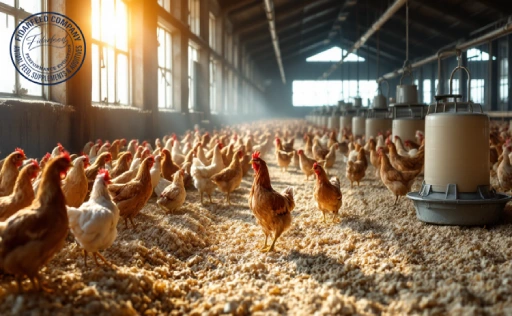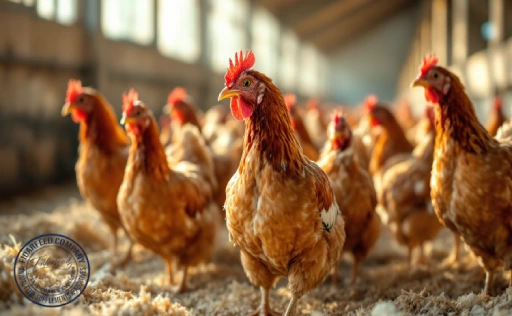
Why Is My Bird Plucking Its Feathers? If you’ve asked yourself this question, you’re not alone. Feather plucking is one of the most distressing behaviors bird owners and breeders encounter. It’s heartbreaking to see a beloved pet or valuable breeder bird pull out its own feathers, sometimes to the point of injury. Whether you’re a first-time bird owner or an experienced breeder, understanding the root causes of this behavior is essential. From emotional stress to physical illness, there are many reasons behind feather plucking. In this article, we’ll break down the key mental and health-related causes, share real-world examples, and offer actionable tips to help you prevent and address this issue. Read on to give your birds the healthy, happy lives they deserve.
Why Is My Bird Plucking Its Feathers? What Feather Plucking Looks Like and Why It Matters
Feather plucking, also known as feather picking, happens when a bird repeatedly damages or removes its feathers. It’s not the same as molting. While molting is natural and symmetric, plucking is uneven and often focused on certain body parts like the chest or under the wings.
Understanding why your bird is plucking its feathers can help prevent complications like infections, bleeding, or long-term behavioral issues. This visible behavior is a red flag—a signal that your bird needs help.
Is Your Bird Bored or Lonely? Emotional Triggers Behind Feather Plucking
So, why is my bird plucking its feathers when there’s no sign of illness? One major reason is emotional stress. Birds, especially social species like cockatoos and parrots, require interaction and mental stimulation.
Learn more about: Synbiotic Supplement for Birds
Without enough attention or entertainment, they may turn to plucking as a way to cope with boredom or loneliness.
Health Problems That Could Be Causing Feather Plucking in Birds
If you’re still wondering, “Why is my bird plucking its feathers even with toys and attention?”, a health issue may be to blame.
Learn more about: Probiotic Caged Birds: The Key to a Healthier Companion
Conditions like parasites, infections, or nutritional deficiencies can cause itching or discomfort. This can lead birds to over-preen or pull out feathers to relieve the irritation.
Could Your Bird’s Diet Be to Blame for Feather Plucking?
Sometimes the answer to why is my bird plucking its feathers lies in its food bowl. Poor nutrition can lead to weak feather growth, dry skin, and a weakened immune system. Birds on seed-only diets often miss out on essential vitamins like A and D.
Environmental Stressors: How Cage Setup and Surroundings Can Impact Your Bird’s Behavior
Birds are sensitive to their environment. Something as simple as a drafty window, constant noise, or lack of privacy can cause chronic stress—leading to feather plucking over time.
Key stressors include:
-
Improper cage size (too small or overcrowded)
-
Poor lighting or no natural sunlight
Learn more about: Creating the Perfect Habitat for Breeding Pet Birds
-
Sudden changes in routine
-
Inconsistent sleep schedules
-
Lack of places to hide or retreat
Consider the cage’s location and layout. Birds need a sense of security, a quiet resting space, and visual barriers to reduce anxiety. Adding natural branches, mirrors, and hideaways can make a big difference.
Hormonal Changes and Breeding Season Behaviors in Birds
Feather plucking can also be triggered by hormones, especially during the breeding season. Birds may become territorial, restless, or overly preoccupied with nesting behaviors. In some cases, these hormonal surges can drive them to pluck feathers—either out of frustration or as a nesting instinct.
This is especially true for cockatiels, lovebirds, and other species that form strong mating bonds. Managing hormone-related behavior involves controlling light exposure (to mimic seasonal changes), minimizing nesting materials, and limiting physical stimulation that may trigger mating responses.
When Feather Plucking Becomes a Habit: Understanding Behavioral Conditioning
Once a bird begins plucking, it can become a hard-to-break habit—even if the original cause is resolved. This is due to behavioral conditioning. The act of plucking may release endorphins, creating a self-soothing loop similar to nail-biting in humans.
Learn more about: Stress in Pet Birds: A Comprehensive Guide to Causes, Prevention, and Treatment
Reversing this habit takes patience. Breeders and owners should focus on redirecting behavior with enrichment, training, and positive reinforcement. Puzzle feeders, trick training, and clicker-based interactions help shift the bird’s focus away from plucking and onto healthier outlets.
What to Do If Your Bird Is Plucking Its Feathers: Step-by-Step Action Plan
Here’s a quick roadmap to tackle feather plucking:
-
Visit an avian vet: Rule out medical causes first.
-
Evaluate diet: Transition to a balanced, high-nutrition plan.
-
Improve enrichment: Rotate toys weekly, introduce training.
Learn more about: Top Tips for Choosing the Best Animal Probiotic Supplier
-
Enhance environment: Adjust lighting, eliminate stressors.
-
Track behavior: Keep a journal of triggers, times, and improvements.
-
Be consistent: Recovery can take weeks or months—stay committed.
Preventing Feather Plucking Before It Starts: Best Practices for Bird Breeders
Prevention is always better than cure. For breeders, this means:
-
Providing chicks with early environmental enrichment.
-
Educating new bird owners about proper diet and care.
Learn more about: Home Breeding Success: 10 Expert Tips for Cockatiel Care
-
Minimizing stressful handling and transport.
-
Offering diverse social interactions from a young age.
Birds raised in rich, engaging environments are far less likely to develop compulsive behaviors like plucking.
Still Wondering Why Your Bird Is Plucking Its Feathers? Here’s When to Call a Vet
If feather plucking persists despite your best efforts, it’s time to consult a professional. Look for a certified avian veterinarian or a bird behavior consultant. These experts can run diagnostics, recommend tailored solutions, and even offer behavior therapy.
Learn more about: Want a Healthy Pet Bird? Try Probiotics
Early intervention can prevent long-term damage and dramatically improve your bird’s quality of life. Don’t wait until your bird is bald or injured—seek help early and act decisively.
Conclusion
Feather plucking is more than a bad habit—it’s a signal that something is wrong. Whether it’s emotional stress, a hidden illness, poor diet, or an under-stimulating environment, addressing the root cause is essential. With the right knowledge, tools, and commitment, you can help your bird recover and thrive.
Have you ever dealt with a bird that plucks its feathers? What strategies worked for you? We’d love to hear your stories, questions, and tips in the comments below. Your insights might just help another bird lover facing the same challenge.








